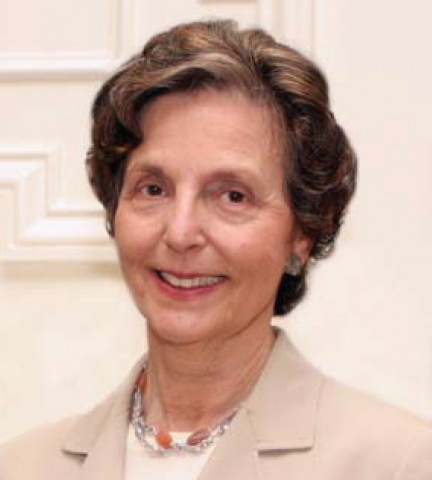
Like one of her well-known mentors and colleagues, Vivian Shapiro has had varied accomplishments during a longstanding career. Social work, she says, “is not a static profession.” Shapiro’s most recent article, “Reflections on the Work of Professor Selma Fraiberg” (Clinical Social Work Journal, 2007), chronicles her mentor’s development as a highly influential clinician, researcher, and educator in the field of infant mental health—one area Shapiro has contributed to herself.
Vivian Shapiro grew up in Montréal, surrounded by many languages. Her grandparents had immigrated to Canada from Russia and Poland. The Holocaust, she says, was “profoundly present” in her family. This, coupled with living through the Depression as a very young child, fostered in her the sense that there was always an opportunity to help things get better.
She attended McGill University in Montréal, concentrating in sociology. After college, she married Harold Shapiro, who would later become the University of Michigan’s tenth president (1980–87).
The Shapiros moved to New Jersey so that he could attend graduate school in economics at Princeton University. She raised their family and began to take classes toward a master’s degree in social work—an achievement that required persistence as the family moved more than once during this time. “I’ve always thought that women often have a dual kind of life,” Shapiro says of managing both family and career simultaneously. “I was lucky to advance in both.”
Shapiro completed her MSW at the University of Michigan in 1969. Soon afterward, she met Selma Fraiberg at the U-M Child Development Project, where Fraiberg was leading a study dedicated to understanding the phases of normal infant development and the contributing factors to infant and early childhood emotional disorders. Shapiro became involved in the pioneering project, working as a clinician, researcher, and graduate student supervisor for nearly ten years. With Fraiberg, she co-authored numerous papers, as well as the highly influential “Ghosts in the Nursery.”
From 1980 to 1988, Shapiro worked as assistant professor, then associate professor, at the School of Social Work, achieving emeritus status in 1987. During this time, she taught and continued to do research on the subject of children’s emotional well-being.
Her work challenged the conventional practice of assessing children’s mental health only once—when the children were in kindergarten. Kathleen Faller, Marion Elizabeth Blue Professor of Social Work, says of Shapiro’s research, “The interventions she taught and practiced have had an enormous effect on infant mental health service delivery.”
She moved back to New Jersey in 1988, when her husband accepted the position of president of Princeton University. The same year, she joined the Mount Sinai Medical School in New York as a research consultant. Here, working with the Hispanic immigrant community, she became interested in the idea of biographical discontinuities.
This interest became the basis for her doctoral research at Smith College in Northampton, Massachusetts. Her dissertation explored, through narrative reconstruction, the stories of Russian immigrants to America— research that resonated with her own family’s history.
When she received her PhD in 1994, Shapiro went on to work with families who had adopted young children from Russia. One of her goals was to help the children reconcile past experiences with current ones so they might “develop a better sense of self.”
Her work in the area evolved into a book, which she co-authored with her daughter Janet (who received a PhD from U-M), entitled Complex Adoption and Assisted Reproductive Technology: A Developmental Approach to Clinical Practice (2001).
Currently, Shapiro continues to work with children and adults of nontraditional families in her private practice. She and her husband also keep busy with their four daughters and eleven grandchildren and with community service.
Like the influential woman she worked with years ago and writes about today, Vivian Shapiro has made marked progress in various roles. As a researcher, educator, clinician, author, mother, and wife, her contributions benefit many.
—Jane E. Martin is a freelance writer living in Ann Arbor.